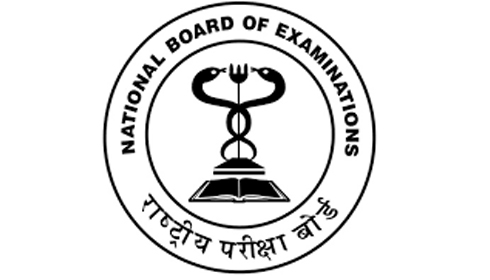
NMO Calls for a Single-Shift Exam Grow Amid Fairness Concerns
In a recent appeal to the Union Ministry of Health, the National Medicos Organisation (NMO) has urged authorities to conduct the NEET-PG 2025 examination in a single shift rather than multiple shifts. The NMO’s recent letter, raises concerns about fairness, transparency, and potential discrepancies in the selection process if the exam is conducted across multiple sessions.
This is not the first time concerns over multi-shift competitive exams have surfaced. In recent years, normalization processes in various entrance tests, including NEET and other high-stakes exams, have faced criticism for failing to ensure absolute fairness. The National Board of Examinations (NBE), which oversees NEET-PG, has previously defended multi-shift exams as a necessary logistical measure to accommodate the increasing number of candidates. However, aspirants and education experts continue to highlight the challenges posed by variations in question paper difficulty and how normalization efforts may not fully account for these disparities.
The core argument against multiple shifts is the variation in difficulty across different exam sessions. If one shift features tougher questions than another, the normalization process—intended to balance score discrepancies—may not be entirely effective. This can lead to an uneven playing field, where some candidates gain an unintended advantage over others.
Experts in medical education echo these concerns. “The integrity of the selection process is at risk when exams are conducted in multiple shifts. While normalization attempts to standardize results, it cannot perfectly adjust for differences in difficulty, test conditions, or unforeseen technical disruptions,” says an education analyst.
Given that NEET-PG is a decisive exam shaping the careers of thousands of doctors, maintaining fairness in the selection process is crucial. Even a minor scoring difference can influence a candidate’s medical specialty selection, affecting long-term career prospects.
Beyond fairness concerns, aspirants highlight the added stress and uncertainty that come with multi-shift exams. A medical graduate preparing for NEET-PG notes, “The normalization process aims to create a level playing field, but the uncertainty of how scores will be adjusted makes it more stressful. Candidates feel anxious about how their performance in a particular shift will compare to others.”
Many medical students are already balancing rigorous internships, long study hours, and the pressure of high competition. The unpredictability of normalization adds another layer of stress, making the examination process more challenging than necessary.
The NBE has previously justified multi-shift exams as a logistical necessity due to the increasing number of candidates. Conducting NEET-PG in a single shift for lakhs of students requires a vast network of exam centers and operational coordination. However, critics argue that the priority should be ensuring a fair and transparent examination process, even if it means additional administrative efforts.
The NMO’s letter has reignited the debate, and the response from the Ministry of Health and the NBE remains to be seen. With growing voices from aspirants and medical professionals calling for a single-shift exam, the authorities may need to reassess whether logistical constraints should override the principles of fairness and equal opportunity in one of India’s most crucial entrance examinations.